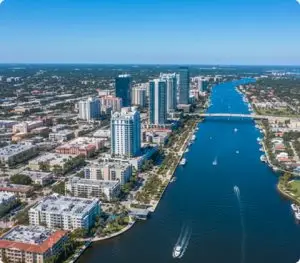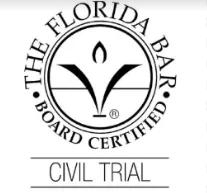
What Is a ‘Notice of Claim’ and When Do You Need to File One in Florida?
Table of Contents
Filing a Notice of Claim is a critical first step when pursuing compensation against a government agency or public entity in Florida. Unlike typical personal injury claims, which can be filed directly in court, lawsuits involving state, county, or city governments require an extra layer of procedure. Miss this step, and your entire case could be dismissed, even if your injuries are severe and your evidence is strong.
This article explains what a Notice of Claim is, when you need to file one, how it applies to different kinds of accidents, and why having a knowledgeable Florida personal injury lawyer is essential when your case involves any government entity.
Understanding a Notice of Claim in Florida
A Notice of Claim (sometimes called a “pre-suit notice”) is a formal written notification that alerts a government agency you intend to seek damages for an injury or loss caused by its negligence.
Under Florida Statute §768.28, individuals cannot sue the state or its subdivisions—such as counties, cities, or public agencies—without first giving the government written notice within a specific timeframe.
This law applies to a wide range of situations, including:
- Accidents involving city or county vehicles, such as police cars, buses, or sanitation trucks.
- Slip and fall or other injuries on government-owned property.
- Medical malpractice in a state-run hospital or facility.
- Construction or roadwork accidents caused by government contractors.
Without a valid Notice of Claim, the government is immune from being sued.
When and How to File a Notice of Claim
The timeline for filing is strict. You must submit your Notice of Claim within two years of the incident (or two years for wrongful death cases).
The notice must be sent to:
- The Florida Department of Financial Services (DFS), and
- The agency or subdivision you believe is responsible for your injuries.
After submission, the agency has 180 days to investigate the claim before you can file a lawsuit in court. This period allows the government to decide whether to settle or deny your claim.
Because even small errors in the notice, such as incorrect agency names or incomplete facts, can invalidate the filing, many people rely on a Florida personal injury attorney to prepare and submit the documentation properly.
Common Scenarios Requiring a Notice of Claim
Government negligence can take many forms, and the Notice of Claim requirement applies to all types of personal injury cases involving public entities. Some examples include:
Vehicle Accidents Involving Government Vehicles
When a government-owned car, bus, or utility truck causes a collision, the injured party must file a Notice of Claim before pursuing a lawsuit. A Florida car accident lawyer can ensure the correct agency is identified and notified.
Slip and Fall or Premises Liability
If you slipped and fell in a government building or on city-maintained property, you still must notify the appropriate city, county, or state department within the deadline.
Medical Malpractice at Public Hospitals
If your injury was caused by negligence at a state or county hospital, such as a delayed diagnosis or surgical mistake, the same pre-suit requirements apply. An experienced Florida medical malpractice attorney can help you navigate both the medical malpractice presuit notice rules and the government claim process.
Construction Site or Roadway Hazards
Many construction accidents in Florida involve public projects. Whether a state road was poorly maintained or signage was missing, the government agency overseeing the work could share responsibility.
Damage Limits in Florida Government Claims
Even when your claim is successful, Florida caps the amount you can recover from government entities:
- $200,000 per individual and $300,000 per incident maximum.
- Larger awards require a special act of the Florida Legislature.
This is another reason it’s vital to work with an attorney, to ensure every liable party (including non-government contractors) is identified so you can seek the full compensation you deserve.
Why You Need a Lawyer for a Notice of Claim Case
Florida’s sovereign immunity laws are complex. Filing deadlines, procedural requirements, and damage limits all make government claims more complicated than standard personal injury lawsuits.
A Florida personal injury lawyer can:
- Investigate the responsible agency or contractor.
- Prepare and file your Notice of Claim correctly and on time.
- Negotiate with the government’s risk management department.
- Take your case to court if the claim is denied.
Attempting to handle this process alone can lead to costly procedural mistakes that end your case before it even starts.
Related Reading and Practice Areas
If your injury involves negligence by a private individual or company instead of a government entity, you might also want to explore:
- [Florida Car Accident Lawyers], for crashes involving private drivers.
- [Florida Slip and Fall Attorneys], for injuries on privately owned property.
- [Florida Medical Malpractice Lawyers], for hospital or doctor negligence.
- [Construction Accident Lawyers in Florida], for jobsite injuries and third-party claims.
Each of these areas follows different procedural rules, but all share one principle: the sooner you take action, the stronger your case becomes.
Contact Kogan & DiSalvo Personal Injury Lawyers
If your injury involves a city, county, or state agency, do not wait. The Notice of Claim deadline can come fast, and missing it can bar you from any recovery.
At Kogan & DiSalvo Personal Injury Lawyers, we have the experience and resources to handle complex government liability cases across Florida. Call (561) 286-8132 for a free consultation today.
We serve clients from our offices in Boca Raton, Delray Beach, Plantation, Palm Bay, St. Petersburg, Vero Beach, North Miami Beach, Boynton Beach, Fort Lauderdale, Lakeland, Stuart, Tampa, and West Palm Beach.
 (800) 707-9111
(800) 707-9111
 Call
Call



















